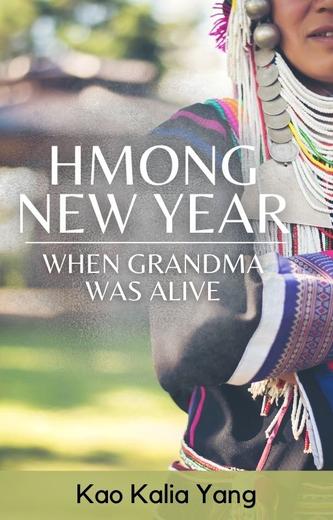
Age:
Middle School
Reading Level: 5.4
Chapter 1
My grandma was a medicine woman, healer, and shaman. Each Hmong New Year, the entire family gathered. We honored our spiritual home and satisfied the ancestral spirits.
Grandma passed away in 2003.
It was late November or early December. It was not yet time for the American New Year.
***
Different Hmong communities exist in the United States and around the world. In each, families fixed feasts to honor harvests past.
Christmas lights brightened houses of South Robert Street on the west side of Saint Paul. Yet my Uncle Chue’s darkened house was the busiest.
Grandma was in every room.
She looked in on us girls busy plucking chickens in the kitchen.
She walked slowly down the basement stairs, a heavy hand on the railing. She checked on the boys who smashed sticky rice into mochi cakes that were dipped in dark molasses later.
She sat at the banquet table in the dining room teaching the younger children. She showed them how to fold gold- and silver-plated joss paper into boats to use as spirit money.
She listened as the adults talked of the past and took short rests from the demands of the present.
Chapter 2
Grandma waited quietly behind Uncle Chue as he faced the night. The front door stood open. Winter cold collided with the house's heat.
Uncle Chue called our spirits from the cold night, the old year, and the sorrows and sicknesses of days past. Then, we could enter our ancestral homes and be among family. We could regain strength and confidence for the future.
***
The television flickered. Adults sat in the living room holding the youngest children in their arms. They watched Hmong films of visits back to Laos.
Home videos showed young men and women in plastic heels and dusty leather shoes standing on yellow earth. Some tossed balls back and forth. Some sang Hmong song poetry.
The adults talked about the quality of the song poetry. Unrehearsed lyrics of love and loss told stories in rhyme.
Nothing but the emotional rise and fall of voice crafted the music, set the rhythm, and triggered tears. Nothing created such detailed discussions and opinions.
The New Year celebration gave the adults in my family a chance to sit and rest after hours on the factory assembly lines. After summers spent beneath the hot sun laboring over rows of cucumber, tomato, and corn. After cooking dinner or taking care of each of us.
The New Year gave us the chance to remember together.
Chapter 3
The best part about celebrating the traditional Hmong New Year for me, my cousins, my aunts, and my uncles was the pride it gave our grandmother.
She tied her curly gray hair in the back with an old rubber band. She walked from room to room in colorful shirts and flowery skirts. Her hands held loosely behind her back.
Grandma gave gentle reminders when she thought necessary. She said things like, “Dawb, make sure you remember to snip off the butt of the chicken before putting it in the pot.”
She climbed the dark basement stairs with hands full of sticky rice beaten to the texture of Japanese mochi balls. She offered small pieces to each of us. “Have a taste. The boys have been working hard, but it is not perfectly smooth just yet.”
Uncle Chue would call in each of our names from the dark night. Grandma would chime in and say, “Los aws, los aws, me Kablia, me Xwm, me Dawb, me Nyiaj . . . Come, enter, Kalia, Sue, Der, Nhia . . .”
Her deep voice called out to the night together with Uncle Chue’s for the return of each of our spirits. While our bodies were safe and well inside, she worried about our spirits' different paths in the old year.
Her presence and voice wrapped us in her wisdom and experience. She made us feel safe and comforted by her love.